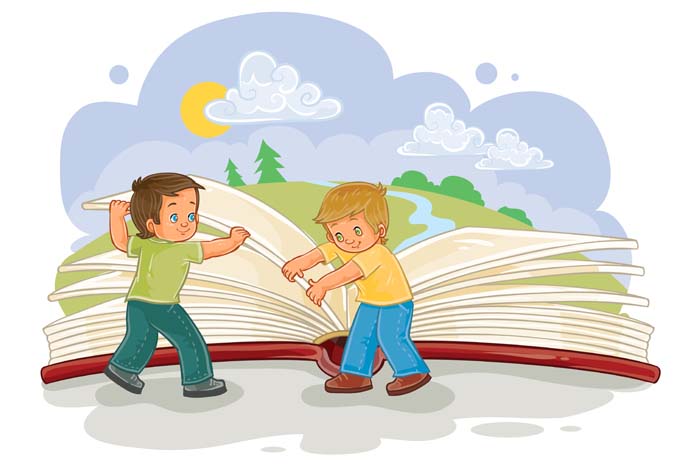In the midst of hectic parenting routines, where time is a precious commodity and obligations vie for attention, the uncomplicated yet profound act of cuddling stands as a sanctuary of emotional nourishment and developmental enrichment. As parents navigate the whirlwind of responsibilities, the significance of understanding what cuddling really entails becomes paramount. It is not merely a physical gesture but a gateway to a world where emotions are exchanged silently, where bonds are strengthened, and where the foundation for a child’s emotional intelligence is laid. Recognizing why cuddling is indispensable in the fast-paced tapestry of parenthood unveils a reservoir of benefits waiting to be explored, promising enduring positive impacts on both the parent and the child. So, in the hustle and bustle of modern parenting, let’s pause to explore the profound depths of cuddling and embrace its transformative power in shaping the emotional landscape of our children and ourselves.
What is Cuddling?
Cuddling, in its essence, goes beyond mere physical contact; it becomes a profound language of love spoken through gentle embraces, reassuring hugs, and heartfelt cuddles. It is a silent symphony of emotions, where the warmth communicated through touch surpasses the limitations of spoken language. In the cocoon of a cuddle, a parent imparts not just physical comfort but a sense of security that resonates deep within the child’s soul. It’s a dance of emotions choreographed in the gentle sway of an embrace, creating a timeless bond that stretches beyond the immediacy of the moment.
Why Cuddling is So Important
Indeed, cuddling transcends the realm of momentary solace; it assumes the role of a fundamental pillar supporting a child’s emotional well-being. The release of oxytocin, often referred to as the “love hormone,” is a biochemical symphony that plays a crucial role during these tender moments. This hormone, secreted by the brain in response to physical touch, creates a cascade of effects that extend well beyond the immediate embrace. Oxytocin not only fosters a deep sense of trust between parent and child but also acts as a catalyst for emotional resilience.
This emotional resilience becomes a beacon guiding them through the complexities of relationships in adolescence and adulthood, shaping a capacity for empathy, trust, and intimacy that is rooted in the earliest experiences of love and connection. In the tapestry of a child’s emotional development, the oxytocin-infused cuddles become threads weaving a fabric of security and emotional strength that endures far into the future.
When Do Babies Start to Cuddle?The innate desire for human touch is evident from early infancy. Babies, wired for connection, seek the reassurance of cuddles soon after birth. Recognizing and responding to these cues is pivotal in fostering a sense of security in your child.
How to Cuddle a Baby
Cuddling is an art that demands tenderness and mindfulness. Create a comfortable environment, maintain eye contact, and adapt your cuddling style to your child’s preferences. Pay attention to their cues, fostering a deeper connection through this simple yet powerful act.
Benefits of Cuddling Your Baby: A Comprehensive Overview
- Emotional Regulation
- Enhanced Bonding
- Boosted Immune System
- Improved Sleep Patterns
- Development of Trust and Security
- Cognitive Stimulation
- Enhanced Brain Connectivity
- Language Development
- Stress Reduction for Parents
- Positive Parenting
- Building Emotional Intelligence
- Resilience in Adulthood
- Positive Social Relationships
Cuddling is a potent tool for emotional regulation. The physical contact and warmth offer a sense of security, aiding children in managing their emotions effectively and setting the stage for healthy coping mechanisms.
Beyond immediate comfort, cuddling fosters a deep emotional bond between parent and child. This bond provides a foundation for a child’s emotional health and positively influences academic success and interpersonal relationships.
Surprisingly, cuddling contributes to a robust immune system. Physical touch and closeness stimulate endorphin release and reduce stress hormones, strengthening a child’s immune response and potentially reducing instances of illness.
Cuddling before bedtime calms children, promoting better sleep. The sense of security derived from physical closeness alleviates nighttime fears and anxiety, resulting in more restful sleep for both parent and child.
Consistent cuddling establishes trust and security in a child’s mind, nurturing confidence and encouraging exploration and independence as they grow.
Cuddling contributes significantly to cognitive development, providing a stimulating environment for a baby’s developing brain. Holding and talking to your child fosters language skills, cognitive understanding, and motor skills.
Positive touch, like cuddling, enhances brain connectivity in infants. The sensory input from physical contact supports the development of neural pathways crucial for cognitive functions, laying the groundwork for future learning abilities.
Engaging in cuddling sessions involves talking, singing, and creating a dialogue, contributing not only to emotional reassurance but also to language development. The soothing tone of a parent’s voice enhances a child’s vocabulary and language comprehension.
Cuddling is beneficial for parents too. Oxytocin release not only strengthens the parent-child bond but also reduces parental stress. In the chaos of daily life, taking a moment to cuddle with your child is a rejuvenating and stress-relieving activity.
Cuddling encourages positive parenting practices, fostering an environment where communication flows naturally. This increased understanding and responsiveness contribute to a positive and supportive parenting dynamic.
Cuddling is a foundational step in building emotional intelligence in children. Through physical closeness and emotional connection, children learn to recognize and understand their own emotions and those of others.
Emotional security from consistent cuddling contributes to resilience in adulthood. Adults who experienced nurturing touch in their early years tend to navigate stress more effectively, showcasing the lasting impact of early bonding.
Cuddling sets the stage for healthy social relationships in the future. Children with a secure attachment formed through cuddling are more likely to develop positive and fulfilling relationships with peers, colleagues, and romantic partners.
Its significance reverberates beyond the immediate, resonating through the corridors of time to mold the enduring emotional and cognitive landscape of the individual. As parents, acknowledging the profound impact of cuddling is an invitation to not merely embrace the momentary warmth but consciously cherish these instances. It beckons us to be present in the simplicity of a hug, recognizing it as more than a fleeting act. Cuddling becomes a sacred ritual, a nurturing embrace fostering a profound connection between parent and child, laying the foundation for a lifetime of emotional well-being. In the gentle folds of a cuddle, there exists a transformative power, an alchemy intertwining generations with a language of love that transcends spoken words. Each embrace, each shared heartbeat, contributes to the evolving narrative of a child’s emotional resilience and cognitive development. It is in these tender moments that the true essence of parenthood unfolds — not just in the act of cuddling, but in the intentional recognition of its profound significance.
Embark on this incredible journey of parenthood with EuroKids. Our commitment to fostering a love for learning in a nurturing atmosphere ensures your child’s early years are filled with warmth and care. Enroll your child at EuroKids today and lay the groundwork for a future brimming with love and knowledge.














